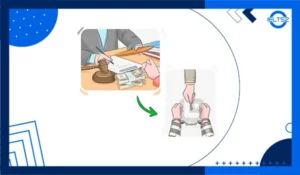لغات ضروری آیلتس برای موضوع حریم خصوصی
IELTS Vocabulary for Privacy
حریم خصوصی یکی از موضوعات مهم در عصر دیجیتال است و میتواند در آزمون آیلتس بهویژه در بخشهای اسپیکینگ و رایتینگ مطرح شود. آشنایی با لغات و اصطلاحات مرتبط با این موضوع به شما کمک میکند تا پاسخهای کاملتری ارائه دهید و نمره بهتری کسب کنید. در این مقاله به معرفی لغات کلیدی و کاربردی برای موضوع حریم خصوصی میپردازیم و مثالهایی از استفاده آنها در آزمون آیلتس ارائه میشود. 1000 نمونه سوالات اسپیکینگ آیلتس با جواب PDF پارت 1 2 3 پیشنهاد بعدی ما به شما عزیزان است.
لغات آیلتس موضوع حریم خصوصی (Privacy)
در این بخش گلچینی از لغات آیلتس برای تاپیک حریم خصوصی به همراه مثال هایی کاربردی و ترجمه فارسی آن ها مشخص شده است. در بخش بعدی لغات آیلتس موضوع حریم خصوصی را در قالب سوال و جواب های اسپیکینگ آیلتس و همچنین رایتینگ خواهیم داشت.
1. Privacy (حریم خصوصی)
تعریف: حق افراد برای محافظت از اطلاعات شخصی و جلوگیری از دسترسی غیرمجاز به آنها.
مثال: “In today’s digital age, protecting one’s privacy is more important than ever.”
2. Confidentiality (محرمانگی)
تعریف: حفظ اطلاعات بهگونهای که فقط افراد مجاز به آن دسترسی داشته باشند.
مثال: “Confidentiality is a key aspect of patient-doctor relationships.”
3. Invasion of privacy (نقض حریم خصوصی)
تعریف: دخالت یا دسترسی غیرمجاز به اطلاعات شخصی یک فرد.
مثال: “The unauthorized sharing of personal data is considered an invasion of privacy.”
4. Surveillance (نظارت)
تعریف: نظارت یا مشاهده مداوم افراد بهمنظور جمعآوری اطلاعات.
مثال: “Surveillance cameras are often installed in public places to ensure safety, but they also raise privacy concerns.”
5. Data protection (حفاظت از دادهها)
تعریف: تدابیری که برای محافظت از اطلاعات شخصی در برابر سوءاستفاده به کار میرود.
مثال: “Companies must comply with strict data protection regulations to safeguard customer information.”
6. Consent (رضایت)
تعریف: اجازه یا موافقت افراد برای استفاده از اطلاعات شخصی آنها.
مثال: “Before collecting any personal data, organizations must obtain explicit consent from users.”
7. Cybersecurity (امنیت سایبری)
تعریف: اقدامات و فناوریهایی که برای محافظت از اطلاعات آنلاین در برابر هکرها به کار میروند.
مثال: “With the rise of cyber threats, investing in strong cybersecurity measures is crucial for protecting personal privacy.”
8. Personal information (اطلاعات شخصی)
تعریف: اطلاعاتی که بهطور مستقیم به فرد خاصی مرتبط میشود، مانند نام، آدرس یا شماره تلفن.
مثال: “It’s important to protect personal information when using online services.”
9. Anonymity (ناشناس بودن)
تعریف: وضعیتی که در آن هویت یک فرد ناشناخته باقی میماند.
مثال: “Many users prefer to maintain anonymity online to protect their privacy.”
10. Tracking (ردیابی)
تعریف: جمعآوری اطلاعات درباره فعالیتهای آنلاین فرد، معمولاً بدون اطلاع او.
مثال: “Some websites use cookies for tracking user behavior without their consent.”
11. Identity theft (سرقت هویت)
تعریف: استفاده غیرقانونی از اطلاعات شخصی فرد برای سوءاستفاده یا کلاهبرداری.
مثال: “Identity theft can have serious consequences, including financial loss and damaged credit.”
12. Encryption (رمزنگاری)
تعریف: فرآیند تبدیل اطلاعات به کدهای خاص برای محافظت از آنها در برابر دسترسی غیرمجاز.
مثال: “Encryption is used to secure sensitive information in online transactions.”
13. Breach of privacy (نقض حریم خصوصی)
تعریف: فاش شدن یا انتشار غیرقانونی اطلاعات شخصی.
مثال: “A breach of privacy occurred when the company’s database was hacked, exposing customer data.”
14. Right to privacy (حق حریم خصوصی)
تعریف: حق هر فرد برای محافظت از اطلاعات شخصی و عدم دخالت دیگران در امور خصوصی او.
مثال: “The right to privacy is considered a fundamental human right in many countries.”
15. Public vs. private (عمومی در مقابل خصوصی)
تعریف: تفاوت بین اطلاعاتی که عمومی و قابل دسترسی است و اطلاعاتی که شخصی و محرمانه است.
مثال: “Social media blurs the line between public and private life, making it difficult to maintain privacy.”
16. Social media privacy (حریم خصوصی در شبکههای اجتماعی)
تعریف: حفاظت از اطلاعات شخصی کاربران در پلتفرمهای شبکههای اجتماعی.
مثال: “Many people are concerned about social media privacy, as these platforms collect a large amount of personal data.”
17. Data mining (استخراج دادهها)
تعریف: فرآیند تجزیه و تحلیل حجم زیادی از دادهها بهمنظور کشف الگوها و اطلاعات جدید.
مثال: “Data mining techniques are often used by companies, but they can raise privacy issues.”
18. Third-party access (دسترسی اشخاص ثالث)
تعریف: زمانی که اطلاعات شخصی فرد با اشخاص یا شرکتهای دیگری به اشتراک گذاشته میشود.
مثال: “Many apps allow third-party access to your personal data, which can be a privacy concern.”
19. GDPR (مقررات عمومی حفاظت از دادهها)
تعریف: قانونی اروپایی که برای حفاظت از دادههای شخصی شهروندان وضع شده است.
مثال: “Under GDPR, companies must be transparent about how they collect and use personal data.”
20. Confidential (محرمانه)
تعریف: اطلاعاتی که فقط باید توسط افراد مجاز قابل دسترسی باشد.
مثال: “It’s important to keep medical records confidential to protect patients’ privacy.”

نکات عملی برای استفاده از واژگان حریم خصوصی در آیلتس
1. استفاده در اسپیکینگ
در بخش اسپیکینگ آیلتس، ممکن است از شما درباره اهمیت حریم خصوصی، چالشهای حریم خصوصی در دنیای دیجیتال، یا تجربههای شخصیتان درباره حفظ اطلاعات پرسیده شود. استفاده از این واژگان به شما کمک میکند تا پاسخهای دقیقتر و متنوعتری ارائه دهید.
مثال: “In today’s digital age, privacy has become a major concern as people are constantly sharing personal information online. I believe that companies should be more transparent about how they use our data.”
2. استفاده در رایتینگ تسک 2
در بخش رایتینگ تسک 2 ممکن است موضوعاتی مانند حفاظت از دادهها، نقش دولتها در حفاظت از حریم خصوصی یا چالشهای مرتبط با حریم خصوصی در شبکههای اجتماعی مطرح شود.
مثال: “Governments and companies should take more responsibility for protecting individuals’ privacy, especially as more personal data is being shared and stored online.”
سوالات پرتکرار اسپیکینگ آیلتس برای موضوع حریم خصوصی
- How important do you think privacy is in today’s society?
پاسخ: “Privacy is extremely important, especially in the digital age, where personal information is easily accessible. People need to have control over who has access to their data and how it is used.” - Do you think governments should do more to protect people’s privacy?
پاسخ: “Yes, I believe governments should implement stricter regulations to ensure that companies and organizations are handling personal data responsibly. Without strong privacy laws, individuals’ information is at risk of being misused.” - What measures do you take to protect your privacy online?
پاسخ: “I use strong passwords, avoid sharing personal information on social media, and enable two-factor authentication to protect my online accounts. I also make sure to read the privacy policies of the apps and websites I use.”
نمونه رایتینگ تسک 2 آیلتس موضوع حریم خصوصی (Privacy)
With the increasing use of technology, privacy is becoming more difficult to maintain. Some people believe that governments should do more to protect individuals’ privacy. To what extent do you agree or disagree?
In today’s digital world, the rapid advancement of technology has made it increasingly difficult for individuals to maintain their privacy. With the growing use of social media, online services, and data collection technologies, personal information is more vulnerable than ever before. While some believe that individuals are responsible for protecting their own privacy, others argue that governments should play a larger role in ensuring data security. In this essay, I will discuss both perspectives and explain why I agree that governments should do more to protect privacy.
On the one hand, individuals have a certain level of responsibility when it comes to protecting their own privacy. People can take measures such as using strong passwords, avoiding the sharing of sensitive information online, and being cautious about the apps and websites they use. Additionally, many social media platforms and online services offer privacy settings that allow users to control who can see their personal information. By taking advantage of these tools, individuals can effectively manage their own privacy and reduce the risk of data breaches or unauthorized access. Therefore, some argue that it is up to individuals to take responsibility for their personal information and be proactive in protecting it.
On the other hand, relying solely on individuals to protect their own privacy is not sufficient, given the complex and often opaque nature of data collection by large companies and organizations. Governments have the power and resources to enforce regulations that can prevent companies from misusing personal information. For instance, the General Data Protection Regulation (GDPR) in the European Union requires companies to be transparent about how they collect, store, and use personal data. This legislation not only empowers individuals to control their data but also holds companies accountable for any breaches of privacy. Without such regulations, individuals are at the mercy of corporations that may prioritize profits over the protection of personal information.
Furthermore, as technology continues to evolve, the amount of data being collected has increased exponentially, and it is difficult for individuals to fully understand how their information is being used. Many companies use complex algorithms and data-mining techniques that make it nearly impossible for the average person to know when and where their personal data is being shared. In such cases, government intervention is necessary to ensure that individuals are not exploited or left vulnerable to data breaches, identity theft, or privacy violations.
In conclusion, while individuals should take steps to protect their privacy, governments must play a larger role in regulating how personal data is collected and used. Strong privacy laws and regulations are essential in safeguarding personal information in the digital age, and without government intervention, individuals are likely to face significant risks to their privacy. Therefore, I strongly agree that governments should take more responsibility in protecting individuals’ privacy, especially as technology continues to advance and data collection becomes more pervasive.
کلام پایانی
چندین مورد از لغات آیلتس برای موضوع هوش مصنوعی همراه با مثال هایی برای پرتکرار ترین تاپیک های رایتینگ و اسپیکینگ آیلتس را با هم در این صفحه بررسی کردیم. این آموزش از یکی از سایت های آموزشی مرجع آیلتس را در همین زمینه به شما عزیزان پیشنهاد میکنیم. ضمنا هر سوالی برای شما مطرح هست با در بخش کامنت ها در همین صفحه یا در گروه آموزش رایگان آیلتس ما در تلگرام حتما مطرح بفرمایید ❤️






